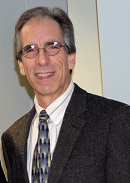 The Center for Judaic Studies and Contemporary Jewish Life sponsors presentations in Judaic Studies at synagogue or community institutions for use in programming, adult education, lectures, and other events with a wide variety of topics presented by a world-class faculty.
The Center for Judaic Studies and Contemporary Jewish Life sponsors presentations in Judaic Studies at synagogue or community institutions for use in programming, adult education, lectures, and other events with a wide variety of topics presented by a world-class faculty.
If your organization is interested in hosting one of the Center’s Road Show presentations, or for more information on the presentations that are available, please contact the Center at 860-486-2271.
Feel free to reach out to us if you have a need for something you don’t see listed below!
Speakers and Topics
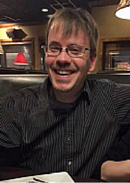 Philip Balma
Philip Balma
Ph.D., Indiana University
Associate Professor of Italian Literary and Cultural Studies
Italian Program Coordinator
Jewish Identity in Contemporary Italy. Minority studies, assimilation vs. identity, the Italkim.
Italian-Speaking Jews and Literature of Migration in Italy. Edith Bruck, Giorgio Pressburger, trans-lingual authors, migrant authors in Italy
Italian Jews in Contemporary Literature (including the Shoah). The works of Primo Levi, Giorgio Bassani, Elsa Morante, Natalia Ginzburg, Italo Svevo, and Alberto Moravia.
Italian Jews on Film. Holocaust cinema, historical cinema, depictions of European Jews in postwar Italian film.
Italian Jews under Mussolini. A historical talk focused on Race Laws and the deportation of 25% of the Italian Jewish population. Discussion of the “Manifesto of Race” and fascist anti-Semitism, fascist Jews, and anti-fascist intellectuals.
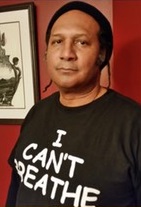 Lewis Gordon
Lewis Gordon
Ph.D., Yale University
Professor of Philosophy and Africana Studies
Afro-Jews Uncovered
Sara Jo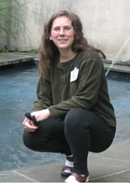 hnson
hnson
Ph.D., University of California, Berkeley
Associate Professor of Literatures, Cultures, and Languages
Not Lost in Translation: The Greek Bible, from Aristeas to the Rabbis
Charles Lansing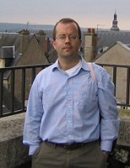
Ph.D., Yale University
Associate Professor of History
German Nazi-Hunters: The Legacy of the Holocaust. In this public talk, I explore the origins, history, and broad impact of the special West German Nazi hunter agency, the Central Agency for the Investigation of Nazi Crimes. A particular emphasis is placed on the relationship between the actions of the agency and the complex story of West Germany’s confrontation with the Nazi past and the Holocaust.
Our Changing Understanding of the Perpetrators of the Holocaust and their Motivations. This talk examines the ways in which our understanding of who participated in the Holocaust and why they did so has changed dramatically since 1945.
Nazis, Postwar Justice, and the Cold War: The Fate of Holocaust Perpetrators After 1945. This lecture explores the multifaceted impact of the Cold War on efforts to identify and prosecute war criminals and Holocaust perpetrators after 1945. The talk explores the central issues and the main players in the two primary phases of postwar trials: the immediate postwar efforts (1945 to 1955) and the second wave of investigations and trials (1958 to the present).
Stuart Miller
Ph.D., New York University
Professor of Hebrew, History, and Judaic Studies
Academic Director, Center for Judaic Studies and Contemporary Jewish Life
Re-Harvesting Sukkot, Pesach, and Shavuot: Recapturing the Meaning of the Pilgrimage Festivals. Many people are unaware that Passover is one of three festivals that are interrelated both historically and, especially, agriculturally. Indeed, the three festivals were conceived as a “package deal.” An understanding of the agricultural significance of each of these festivals and how they were originally celebrated breathes new life into their meaning and observance. The reasons why the historical meaning of these festivals has been emphasized in modern times will be explored.
Sepphoris-Tsippori: Rabbis, Romans, and Ritual Baths in Ancient Galilee. The first-century Jewish historian Josephus referred to the city of Sepphoris as the “ornament of all Galilee.” Once the capital of the Galilee, the city was also home to many important ancient rabbis, including Rabbi Judah HaNasi, who edited the Mishnah. Professor Miller was a member of the staff of excavations at Sepphoris directed by Professors Eric and Carol Meyers (Duke University) from 1986 until 2000 and took UConn students to participate. Today the site is one of the most visited and popular archaeological excavations in all of Israel.
Ritual Purity and Jewish Life from Ancient Galilee to Nineteenth Century Chesterfield, CT. Archaeological exploration of the development of ritual purity rites, especially immersion, from ancient times to the present. Professor Miller has been involved in the excavation of ancient immersion pools (“mikva’ot”) in Israel (at Sepphoris) and in Chesterfield, CT, which was home to a Jewish agricultural community from the 1890s until around 1930. Ritual purity rites, he argues, are a key to understanding the tenacity of religious observance among Jews of antiquity and modernity.
The Real Miracle of Hanukkah: Why Everyone’s Favorite Minor Festival Should be Considered a Major One. A historian’s view of the events leading to Hanukkah and a reevaluation of the festival’s importance. This is the story of Hanukkah as you have never heard it before.
Separating out the Facts: The Origins of Christianity and the History of Judaism. What both Jews and Christians need to know about the beginnings of Christianity and its roots in Judaism. The reasons for the eventual “parting of the ways” are explored in-depth.
Jeremy Pressman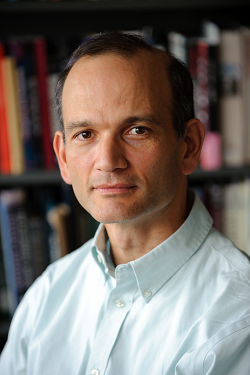
Ph.D., MIT
Associate Professor of Political Science
Director, Middle East Studies
Contesting Israeli-Palestinian History on the World Stage. Every fall, one Israeli and one Palestinian leader speaks at the UN General Assembly’s “General Debate.” What historical story does each side tell? How consistent are the histories they have told over the last 15 years? In a close study of the speeches, we find many of the same themes of war and peace recur regardless of the particular speaker and the timing.
Arabs, Israelis, and the Limits of Military Force. Arabs and Israelis have long relied on military force and coercion to advance their fundamental foreign policy objectives. Yet often such an approach has actually proven counter-productive. Using historical illustrations, Dr. Pressman outlines the negative security repercussions and missed diplomatic opportunities that resulted from an over-reliance on military force in the Arab-Israeli confrontation.
Israeli Rule in Jerusalem. Israeli leaders have talked about Jerusalem both as a city of all its inhabitants and as the Jewish capital. Those contrasting visions have not played an equal role in the actual administration of the city. But they do share a common trait: Israeli Jewish control of the fundamental direction of the city. The idea of Palestinian equality at the fundamental decision-making level has never been a serious option since 1967. One way to illustrate these competing approaches is through a look at the Jerusalem Light Rail system.
Fred Rod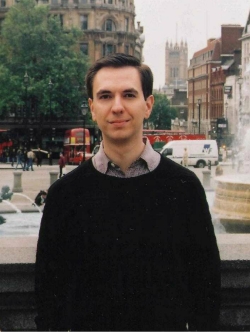 en
en
Ph.D., New York University
Associate Professor of English
Converts and Conversion to Judaism: 19th to 21st Century Perspectives. Considers the history of conversion in the modern world, with focus on issues of intermarriage, historical precedents, proselytism, and Jewish identity.
Mixed Identities in Holocaust Literature. A comparative study of the range of Jewish identities in the literature of the Holocaust, from the experiences of hidden children and individuals who resisted Jewish identification to post-Holocaust reckonings with racial persecution versus religious profession.
Past and Present: The Legacy of ‘Classical’ Reform Judaism for Today. Discusses the beginnings of progressive Judaism in Germany, Britain, and America; the struggles between universalism versus particularism and “race versus religion”; and the heritage of history (versus burden of the past) for the 21st-century.
Recovering Jewishness: Modern Identities Reclaimed. Studying three historical moments in modern Jewish life: the beginnings of liberal Judaism in the 19th century, persecution based on ethnicity in the Holocaust, and the post-Holocaust struggle between “religion” and “race.” This lecture looks at the changing faces of Jewish identities (plural) in the modern world and the many ways in which this era has witnessed the affirming reclamation of Jewishness even in the midst of catastrophic losses.
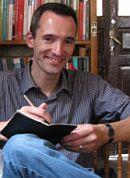 Sebastian Wogenstein
Sebastian Wogenstein
Ph.D., University of Tuebingen
Interim Director, Center for Judaic Studies and Contemporary Jewish Life
Associate Professor of German
From Abraham Geiger to Joseph D. Soloveitchik: How German are American Jews? Germany’s notoriety as a result of the Holocaust has occluded not just the vibrant history of Jews in Germany prior to 1933, but also the impact of this history on American Judaism. This talk explores the German origins of two important movements in today’s American Jewish community, the Reform movement and Modern Orthodoxy, and considers how Yekkes have helped shape Jewish life in 20th- and 21st-century America.
